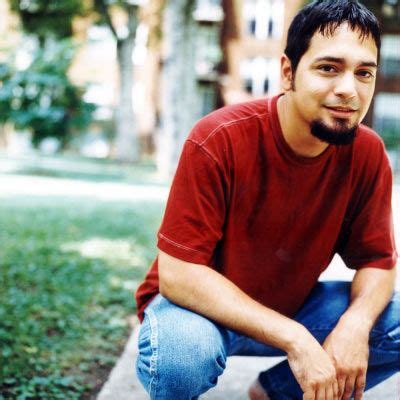A Quote by Tsoknyi Rinpoche
If we can allow some space within our awareness and rest there, we can respect our troubling thoughts and emotions, allow them to come, and let them go. Our lives may be complicated on the outside, but we remain simple, easy, and open on the inside.
Related Quotes
A human encounter with holiness is devastating. It refuses to allow us to be impressed with the things of the world we’ve been chasing. It refuses to allow us to remain comfortable in our sin. It refuses to allow us to remain on the throne of our lives. And it leads us to a relationship with the only One who can perfectly love us, who can forgive all our sins, and who can make us into His likeness. Our encounter with His holiness is our devastation. And our devastation is our salvation.
The only things in which we can be said to have any property are our actions. Our thoughts may be bad, yet produce no poison; they may be good, yet produce no fruit. Our riches may be taken away by misfortune, our reputation by malice, our spirits by calamity, our health by disease, our friends by death. But our actions must follow us beyond the grave; with respect to them alone, we cannot say that we shall carry nothing with us when we die, neither that we shall go naked out of the world.
When we cling to thoughts and memories, we are clinging to what cannot be grasped. When we touch these phantoms and let them go, we may discover a space, a break in the chatter, a glimpse of open sky. This is our birthright—the wisdom with which we were born, the vast unfolding display of primordial richness, primordial openness, primordial wisdom itself. When one thought has ended and another has not yet begun, we can rest in that space.
...Those laws are within the grasp of the human mind. God wanted us to recognize them by creating us after his own image so that we could share in his own thoughts... and if piety allow us to say so, our understanding is in this respect of the same kind as the divine, at least as far as we are able to grasp something of it in our mortal life.
Meditation is not a matter of trying to stop thinking or make your mind go blank but rather to realize when your attention is wandering and to simply let go of the thoughts and begin again. It is a way of changing our relationship to our thoughts, so we're not so consumed by them, with no sense of space. Having a newly spacious relationship to our thoughts brings both peace and freedom.
Some of us have a hard time believing that we are actually able to face our own pain. We have convinced ourselves that our pain is too deep, too frightening, something to avoid at all costs. Yet if we finally allow ourselves to feel the depth of that sadness and gently let it break our hearts, we may come to feel a great freedom, a genuine sense of release and peace, because we have finally stopped running away from ourselves and from the pain that lives within us.

































